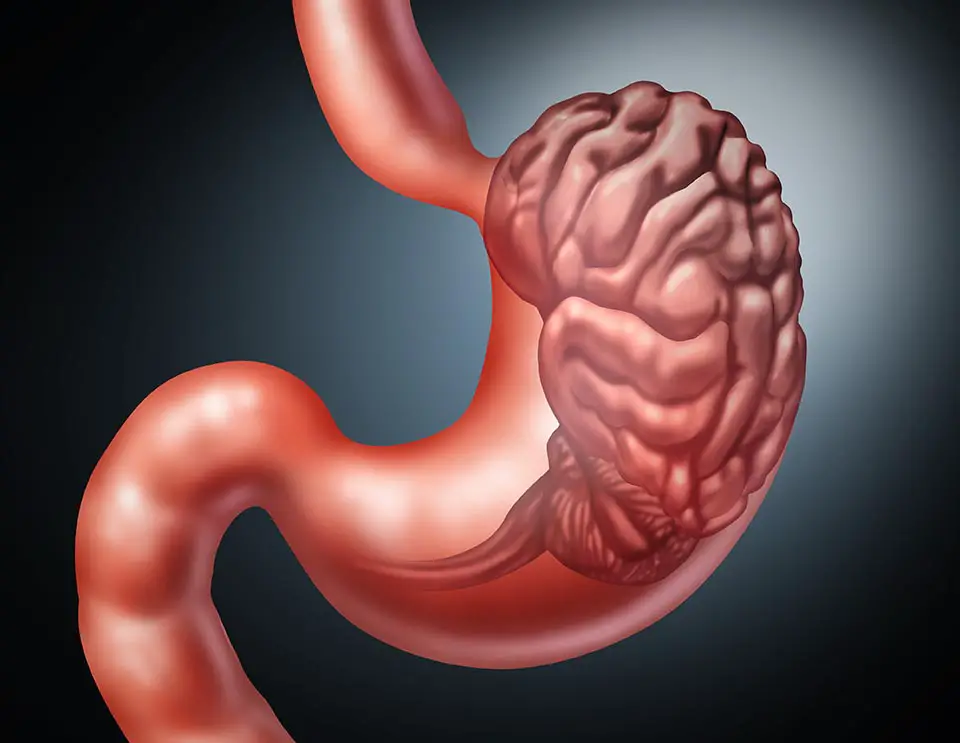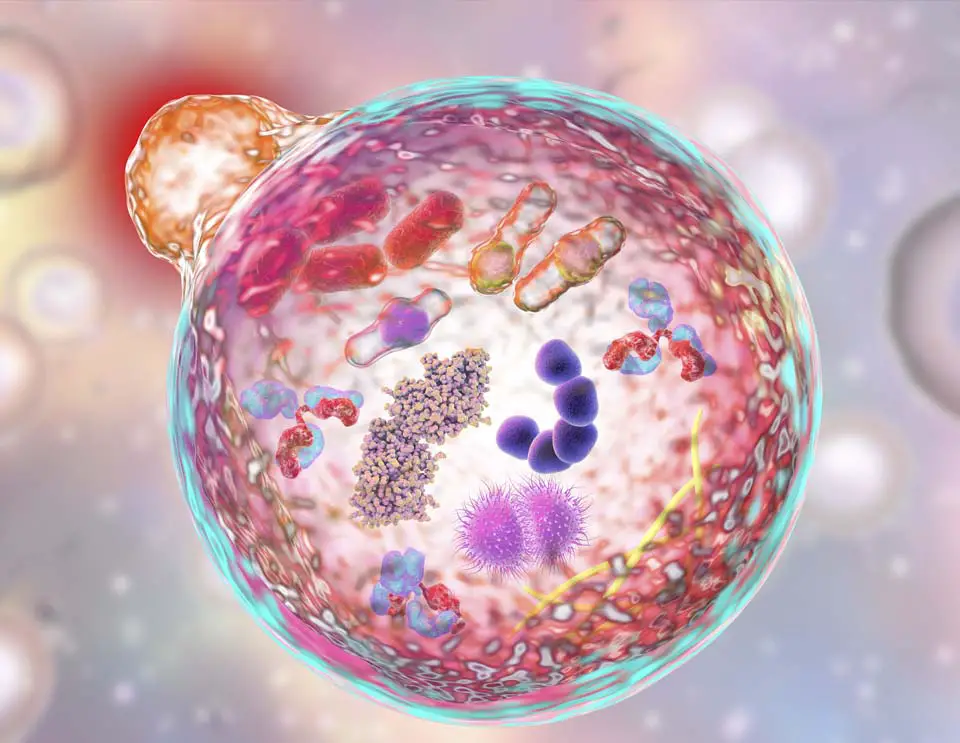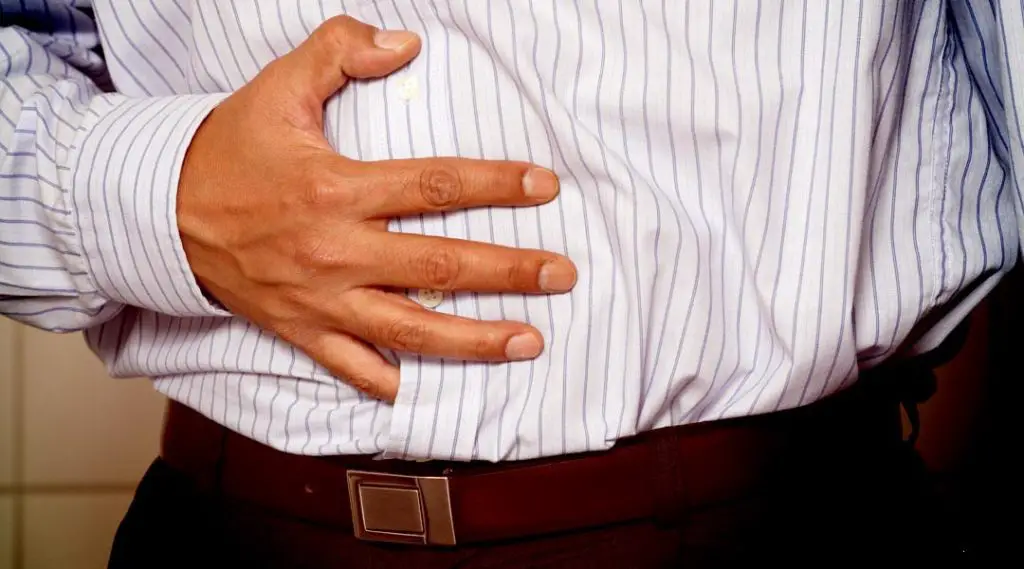For most of my life, I’ve suffered from bloating, gas, stomachaches, etc. to the point I was certain I was suffering from irritable gut syndrome. Since starting intermittent fasting, I can safely say that, while I do have a sensitive gut, my problems where mostly due to poor eating hygiene. Did intermittent fasting help my digestion and bloating problems?
Fasting gives the digestive system a break and its other effects on gut health include improving the balance of bacteria in the gut, promoting probiotic bacteria, and increasing bacterial diversity in the gut. Studies showed that even short-term fasts can induce long-term benefits to gut health.
But before we break down these positive effects fasting can have on your gut health and digestion, let’s take a look at how all that works exactly.
How Does Digestion Work?
The digestive system is a series of organs, linked by a long tube, from the mouth to the anus. The organs on the path are all hollow organs and come in this order: mouth, esophagus, stomach, small intestine, large intestine, and anus.
When you eat, your body will break down proteins, fats, carbohydrates, vitamins, and minerals, for energy, cell repair, and growth. Every part of the digestive system helps food through your gastrointestinal tract, breaking it down along the way. Once each part of the food is broken down, your body is then able to absorb it.

The process of digestion is the following :
- Once you chewed and swallowed foods and liquids, they will go down the esophagus and they’ll be mixed within each organ. This first process is called peristalsis.
- In the stomach, the breaking down will start. Glands in the lining of your stomach will produce stomach acids as well as enzymes, some produced by bacteria in the stomach, to do so. The muscles in your stomach will mix the food with the digestive juices.
- Your pancreas will then produce other digestive juices, in order to break down carbohydrates, fat, and proteins. Some of the produced juices go down to the small intestine.
- Then the liver produces bile in order to digest some fats and vitamins. Bile is then either stored in the gallbladder or transferred to the small intestine if needed.
- Your gallbladder will store bile between meals and, when needed, will push it through to the small intestines through small tubes called ducts.
- Pancreas juice mixed with bile will go down the small intestine. The small intestine will also produce its own digestive juices. Mixed with the other juices, it’ll complete the breaking down of proteins, fats, and carbohydrates. Bacteria in the intestine will produce specific enzymes in order to help the breaking down of carbs. Some water will be moved from your bloodstream to help the process. Water will also be absorbed by the breaking down of certain nutrients.
- Finally, your large intestine, helped by bacteria, will break down the remaining nutrients. All waste products of the digestion and part of food that are too large will become stool.
Here’s the digestive process, in a nutshell. You can see that in many cases, the process includes bacteria to produce certain enzymes to break down the food we eat.
Bacteria is present in a small part in the stomach, in greater part in the small intestines and, mostly (around 60%), in the colon, or large intestine. These bacteria are also called gut bacteria and gut microbiome. More generally, we can refer to the state of your gut bacteria as gut health.
What Is Gut Health?
Gut health, gut microbiome, and gut bacteria are huge subjects. So huge and complex that the whole picture of the gut’s role in the body is not yet fully understood.
The gut microbiome refers to the microorganism living in our intestines. Each person has around 300 to 500 different types of bacteria living in their gut. But don’t be fooled, all those bacteria are not harmful. In fact, many of them are actually beneficial and necessary for the body.
Bacteria, Yeast, fungi, viruses, protozoans, are some of the organisms you’ll find inside your gut microbiome. The average collective weight of these organisms is around 2kg for an adult and each one contains around 100 trillion bacteria.
It’s actually now been recognized as an organ by the scientific community. When for decades the digestive system was considered a rather simple system, discoveries in the field of gut health in the last twenty years opened a whole new field of possibilities. The gut microbiome plays an important role in our immune system, mental condition, autoimmune diseases, inflammation, allergies, etc.

To show you an example of the importance of gut health, one hypothesis says that gut bacteria play a role in autism. Going as far as thinking improving the gut bacteria might improve and even reverse the condition. This study published in 2019 on the subject concluded that :
Our analysis warrants additional prospective cohort studies to evaluate the influence of the microbiota in the pathogenesis of ASD (Autism Spectrum Disorder) and associated GI (Gastrointestinal) symptoms. A future impact of such studies could potentially guide the implementation of dietary/probiotic interventions impacting the gut microbiota in patients with ASD.
Source
Opening a huge range of opportunities and new studies to be done on the subject. Ending with “the implementation of dietary/probiotic interventions”. Meaning the way we eat, greatly influence gut bacteria.
But food is not the only factor in a healthy gut. These include :
- Stress levels
- Hydratation
- Diet
- Sleep
I explained circadian rhythm in my article about fasting and jet lag. And got into other details about it in my article about fasting and sleep. Circadian rhythm is your body’s clock. And we have several (brain, kidney, liver, etc.).
Even our gut microbiome has its own circadian rhythm. Meaning the amount and types of bacteria will vary greatly depending on the time of the day or night.
Disrupting your gut circadian rhythms, by eating during the night, or simply because of jet lag, can result in negative impacts to our metabolic health. Resulting in ill-effects such as bloating and gas.
As I mentioned in the beginning, keeping balance with the gut microbiome is really important. Gut bacteria are both composed of good bacteria and bad bacteria. The later will be the one causing problems and potential disease when growing.
As an example, let’s look at how processed foods have a bad effect on your gut health. When you eat processed food and all of its trans fats, refined sugar and artificial sweeteners, they’ll cause a shift in your gut microbiome.
Why? Because when broken down, many compounds of processed foods are relished by the bad bacteria in the gut. This bad bacteria will grow through this and, in the long term, might outgrow good gut bacteria.

The two best types of food to promote good gut bacteria are those containing :
- Prebiotic, which is mostly fiber found in certain carbohydrates that you cannot digest (banana, garlic, leeks, etc.). Your good gut bacteria will eat and grow on those fibers
- Probiotic which are live bacteria found in some food. Think fermented food like sauerkraut, kimchi, miso or yogurt.
You can also take probiotic supplements if needed to help improve gut health, I don’t really know about them, I’d advise you to read reviews or even ask your doctor about which ones to take.
One last thing. As you can see, I just talked about prebiotic and probiotic. Biotic literally means :
Relating to or resulting from living organisms.
In that case, we can easily draw to the conclusion that antibiotics might be harmful to gut health. The role of antibiotics is to kill bacteria, plain and simple. Only they don’t stop to think about which one. And repetitive use of antibiotics can cause real harm to your gut health in the long term.
How Fasting Affects Digestion and Gut Health
It Gives Your Digestive System A Break
The first big thing with fasting is that your body won’t have to digest anything for a while. When eating three times a day and snacking in between, you’re not only always in your eating window, but your body constantly has to handle, digest and break down food.
After a big meal, if you’re tired it’s simply your body putting most of its energy into digesting the food you just ate. So, not only you’ll get more energy on an everyday basis since your body won’t have to work on digestive functions for hours, but you’ll also be able to put your digestive system to rest.
It Helps Reset Your Gut Balance
When you fast, you’ll evidently not be eating refined sugars or carbs. In other words, you won’t be feeding the bad bacteria, thus helping bacteria balancing in your gut.
As I mentioned above, the gut balance is very important. An unhealthy gut is an unbalanced gut and this can have severe effects on your body, including :
- Leaky gut also called ‘increased intestinal permeability’
- Dyspepsia, which results in abdominal burns and pains
- Irritable bowel syndrome
- Inflammatory bowel disease
While your digestive system is at rest, your body will work on cleansing and resetting gut flora. This study done on fruit flies discovered that short-term and intermittent fasting could significantly improve gut health in the long-term.
It Profits From Autophagy
The process of autophagy literally comes from the words auto (meaning “self”) and phagy (meaning “eating”), so you’re body is basically eating itself.

This process is well known in fasting and it’s the “detox” effects you get when you fast. When your body turns to body fat as the main source of energy, it also starts the process of autophagy. This means getting rid of dead cells, eliminating toxins, fatty tissue, and many other waste products in the body.
If like me you’re into before / after stories on the Internet of people doing incredibly long fasts (up to a hundred days), you might already know that many of them experienced a strange side effect on such long fasts: certain scared tissues simply disappeared. The body ate it during autophagy.
Autophagy will do wonder on your gut. I’ll help the proliferation of good gut bacteria, improve metabolism, clean toxins, and waste products in the gut, improve digestion, reduce oxidative damages, strengthen the gastrointestinal mucosal lining, reduce inflammation and reduce oxidative damage.
It Helps Fight Infection
Fasting is also known to help boost the immune system. Some studies showed that caloric restriction or fasting is prone to improve your immune system, by exacerbating the body’s answer to sickness and inflammation.
Fasting could potentially help reduce the number of infectious bacteria present in your system. Thus, reducing the chance of infection. When fasting, your body will maintain healthy glucose levels. Keeping your glucose levels in balance is important because bacterial infections need high glucose levels to survive.
This study aimed especially at discovering the link between glucose levels and ATP secretion from bacteria. In every living form biochemical functions, ATP provides the energy necessary to chemical reactions, metabolism, cellular division, etc.
The study showed that glucose was essential to ATP secretion, thus helping bacteria’s growth. In the abstract, they mentioned that bad gut bacteria, like pathogens or commensals, might secrete ATP and modulate immune system functions.
Fasting, and more specifically ketosis, is known to be a glucose restriction. This limitation will then help fight bacteria and prevent its proliferation in the body and the gut.
It Can Heal Leaky Gut Syndrome
I talked about one of the ill-effects of having gut imbalance, meaning to many bad bacteria in the gut flora, one of them being the leaky gut syndrome. But what is it exactly?
The inside of our stomach and intestines are covered with intestinal lining. This lining works as a barrier, controlling what gets into the bloodstream and what doesn’t. In a way, everybody has some form of leaky gut, since the permeability of the lining varies greatly from one person to another.
But as always, refined sugar, low fibers, and high carbohydrates consumption can lead to a very leaky gut. Leaky gut is also be linked to many other diseases like IBS, Crohn’s disease, multiple sclerosis, type 1 diabetes, etc.
The proliferation of bad bacteria in the gut puts a strain on the intestinal lining, creating large cracks and holes that allows partially digested foods, toxins, and bacteria to get into the bloodstream. This can cause inflammation and more aggravations in the gut flora.
By helping the gastrointestinal tract and the digestive system to rest, by restricting glucose intake, balancing gut bacteria, fasting will promote good bacteria and in turn help repair a leaky gut.
Why Fasting May Cause Diarrhea or Constipation?
How Fasting Causes Diarrhea?
Diarrhea can occur especially if you’re entering fasting after eating lots of carbohydrates. It might also be linked to the big drop in insulin, which tells your kidneys to excrete a lot of water.
During fasting, there will also be an oversecretion of water and salt in the gastrointestinal tract that will impact diarrhea.

Another thing that may cause this side-effect is the increased consumption of tea and coffee, which are two of the goto drinks when fasting.
Caffeine drinks are known to have a laxative potential, especially strong for certain people, that can go as far as causing diarrhea.
Lastly, you’ll lose plenty of electrolytes with each bowel movement. Diarrhea and watery stool often come from low sodium or potassium levels.
All this will generally happen when starting implementing intermittent fasting or at the end of a longer fast. Fasting in itself doesn’t cause diarrhea, it’s generally linked to other eating habits.
To prevent this there’s a few things you can do:
- Try switching between regular coffee and decaffeinated ones. If you’re drinking tea, try Rooibos
- Get 1 tablespoon of psyllium husk in the morning, with at least a cup of water. You should drink a lot when getting psyllium husk
- Get salted water, broth, pickle juice, or even sodium/potassium caps. It’s important to keep your electrolytes balanced
- Stay hydrated
How Fasting Causes Constipation?
Constipation will mostly depend on people. When fasting, you’ll logically have fewer bowel movements each day.
If you’re used to one or more every day, it will feel strange not to go to the toilets more often.
Everyone is different and certain people have digestive tracts that move slower than others. Eating constantly will help it keep moving, fasting will drastically reduce bowel movements.
Most of the time, it’s just a natural side effect, you’re not so much constipated as not needing to go to the toilets.
This will come from your body having to adapt from burning sugar for energy, to burning fat. During this transition, this can cause irregularity in your bowel movements.
So, I would mostly advise you to wait as it will get back to normal, or at least to more regularity with a bit of time.
But if it becomes a real discomfort, you should definitely take some action:
- Drink a lot
- Try taking magnesium citrate, it could help hydrate your colon
- Try bulletproof coffee in the morning. It won’t be a strict fast, but it can help to get things moving
- Exercise and move more
Will These Side Effects Last?
Constipation will regulate itself after only a few days in most people. If you’ve always suffered from constipation, there’s no evidence fasting will help with that.
But eating less will lead to fewer bowel movements and, even if you’re often constipated, getting less food might leave you feeling constipated less often.
As for diarrhea, it will be stronger at first but decline with time. After several years of intermittent fasting, I still get it now and then, so fasting is not the miracle cure for everything.
But as I said earlier, diarrhea won’t come from fasting itself, it will come from how you’re eating around those fasting periods.
Diarrhea often comes when I’m not following intermittent fasting during weekends or when I’m carb-loading on certain days and during holidays.
So yes, when impacting your digestive system and gut balance and while improving all this in the long term, fasting will also cause irregularities, discomfort, and side-effects if your body is not used to it.
Conclusion
If you constantly feel like your digestive system is troubling you, either through gas, stomachache, or cramps, even if you’re not trying to lose weight, I would advise you to try intermittent fasting.
Eating constantly doesn’t give your digestive system time to rest and your gut bacteria time to balance itself, it’s constantly battling with food.
Trust me, I started intermittent fasting to lose weight, never to help with my gut problems. After several years I can safely say it hugely impacted my digestive problems and everyday life.
Now the only times I feel bloated or gassy is when I overeat, on holidays or when partying on the weekend.
Mostly, when I’m not intermittent fasting. And each time I do it, I remember I was feeling like that 80% of the time before implementing intermittent fasting.

